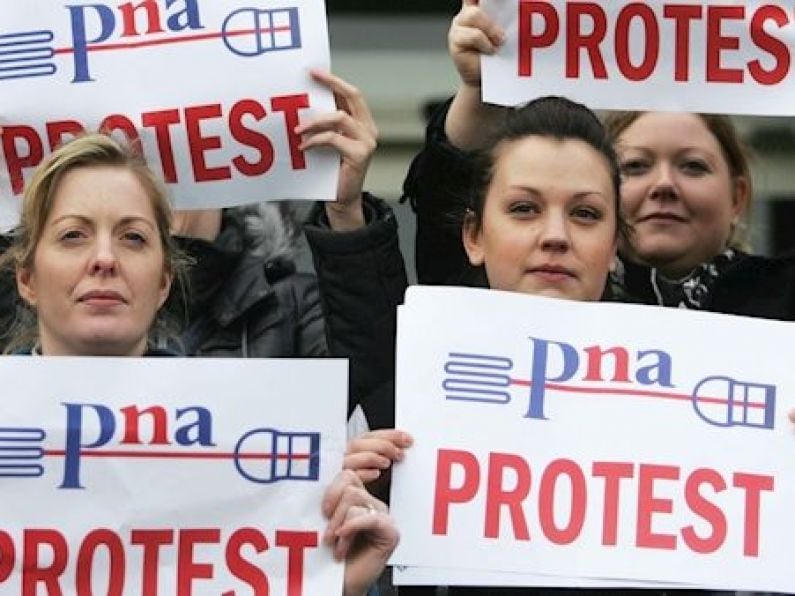The general secretary of the Psychiatric Nurses Association, Peter Hughes, says his members do not want to strike, but government inaction is forcing them to do so.
The Psychiatric Nurses Association (PNA), which represents some 6,000 nurses, is taking the industrial action over concerns about recruitment and retention in the nursing sector.
Its members are to strike on February 12, 13 and 14 and will not be available for overtime on January 31 and February 1, 5, 6 and 7.
Mr Hughes told RTE’s Morning Ireland that he hopes the issue is resolved before the overtime ban comes into force, otherwise it will have a big impact.
The PNA is due to meet the HSE on Tuesday of next week, he said.
He criticised the Government’s mental health policy in recent years, pointing out that there had been an increase of only 30% in community services while there had been a 70% reduction in beds in the system.
“We believe the Government has not responded to these issues. Our members don’t want to strike, we would welcome a robust proposal," he said.
Mr Hughes also said that the Pay Commission’s conclusions in relation to pay were incorrect. He pointed out that vacancy rates in the sector have led to a reliance on agency staff and overtime.
He said that €1m per week is being spent on agency staff with a further €300,000 being spent on overtime. This should be spent on recruitment and retention claimed Mr Hughes.
The PNA carried out a survey in 2017 which found there were 500 vacancies in the service, a further survey was carried out in August 2018 which showed an increase of 40% to 700 vacancies.
“Month by month the vacancies are increasing, this is going to have an impact on patient safety," he said.
The Pay Commission got it wrong. A vacancy rate increase of 40% in less than a year shows that’s the case.
“If overtime and agency spending was instead spent on recruitment and retention it would still be within the pay agreement.”






